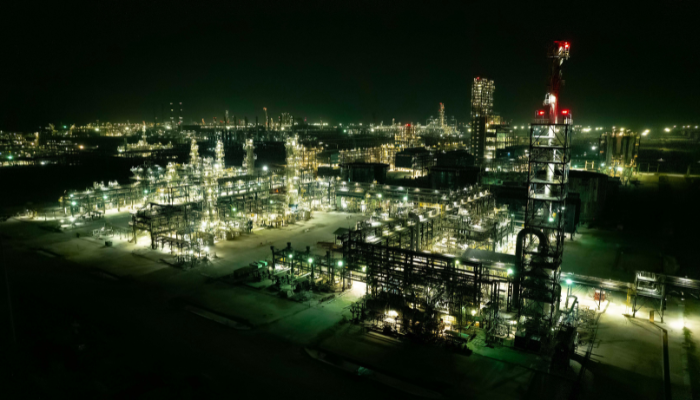Dangote refinery’s recent move to slash the price of automotive Gas Oil, popularly known as diesel, to N1000/litre is shaking the market, as Nigeria produces about 2.5bn litres of the product annually.
On Tuesday, the refinery announced a reduction in the price of diesel from N1,200/litre to N1,000/litre, a development that sparked excitement among operators in the downstream oil sector.
Read also: Respite for manufacturers as Dangote refinery sells diesel at N1000/litre
Dangote’s output is affecting Nigeria’s import arrangements, with local high sulphur gasoil consumers dependent on the refinery’s supply.
Market participants believe the price cut will have a significant impact on local values and import markets.
Renowned diesel dealers who have made a fortune importing the fuel are now unsure how to respond as they watch their empire crumble in a week.
Many traders are unsure what volume to expect from the massive refinery, or whether its supply would be sufficient to meet the daily market demand of over 7 million litres.
According to an Argus report, the typically active high sulphur gasoil offshore Lome ship-to-ship (STS) market was described as “almost dead” by a market participant yesterday.
The report read “no bid or offer levels for 10,000-20,000t STS transfers were reported. The most competitive offer was at a premium of $25/t against Ice May gasoil futures, for loading between the last week of April and the first week of May.”
Dangote first entered the market by promising to sell diesel for N1,200 per litre, and while the market was still absorbing this, the company promised to further reduce the price to just N1,000 per litre, at a time when traders estimate that the landing cost for imported fuel would be approximately N950 per litre.
BusinessDay’s findings showed the price of diesel in most depots currently hovers around N950 to N1100.
On Thursday, MRS depot base sold diesel at N1,055 while Ibeto Depot sold at N1,060.
President Bola Tinubu, on Wednesday, applauded Dangote Oil and Gas Limited for reducing the gantry price of Automotive Gas Oil, also known as diesel, from N1,650 to N1,000 per litre.
Tinubu described the move as an “enterprising feat” and said, “The price review represents a 60 per cent drop, which will, in no small measure, impact the prices of sundry goods and services.”
In a statement signed by Ajuri Ngelale, special adviser on media and publicity statement, Tinubu affirmed that Nigerians and domestic businesses are the nation’s surest transport and security to economic prosperity.
Tinubu also noted the Federal Government’s 20 per cent stake in Dangote Refinery, saying such partnerships between public and private entities are essential to advancing the country’s overall well-being.
Therefore, he called on Nigerians and businesses to, at this time, put the nation in priority gear while assuring them of a conducive, safe, and secure environment to thrive.
This statement comes precisely a week after Dangote met President Tinubu in Lagos, where he said Nigerians should expect a drop in inflation given the cut in diesel pump prices.
“In our refinery, we have started selling diesel at about ₦1,200 for ₦1,650 and I’m sure as we go along…this can help to bring inflation down immediately,” Dangote told journalists after he paid homage to President Bola Tinubu at the latter’s residence to mark Eid-el-Fitr.
Read also: Dangote Refinery commences supply of one million-litre diesel to each marketer
The businessman said his petroleum refinery had been selling diesel at N1,200 per litre, compared to the previous price of N1,650–N1,700.
He expressed hopes that Nigeria’s economy will improve, as the naira has made some gains in the foreign exchange market, dropping from N1,900/$ to the current level of N1,250 – N1,300.
Dangote said this rise in value has sparked a gradual drop in the price of locally-produced goods, such as flour, as businesses are paying less for diesel. Therefore, he asserted that the reduced fuel costs would drive down inflation in the coming months.
“I believe that we are on the right track. I believe Nigerians have been patient and I also believe that a lot of goodies will now come through.
“There’s quite a lot of improvement because, if you look at it, one of the major issues that we’ve had was the naira devaluation that has gone very aggressively up to about ₦1,900.

